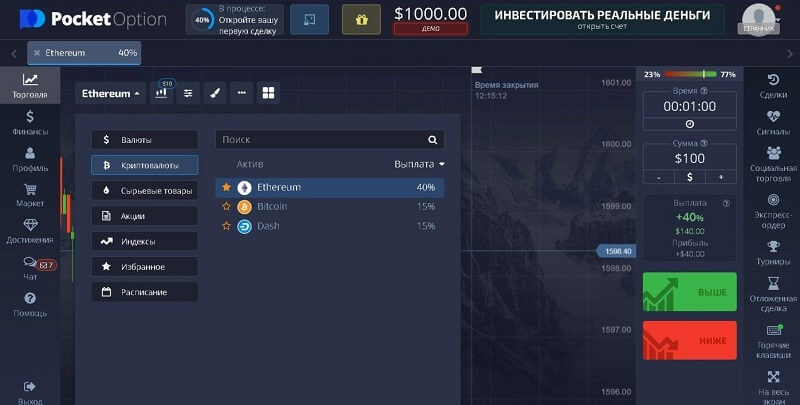
As the financial world continues to evolve, robust measures are implemented to ensure security and regulatory compliance. One of the key components of this evolution is the Anti-Money Laundering (AML) policies that various trading platforms adopt. In this regard, Pocket Option, a popular online trading platform, has enacted a strict AML policy to safeguard its users and maintain the integrity of the financial system. For detailed information, you can read the Pocket Option AML Policy Patakaran sa AML at KYC Pocket Option, which outlines the procedures and measures they have in place.
The implementation of the AML policy at Pocket Option is aligned with international standards and principles to prevent money laundering and terrorist financing. This commitment is not merely a legal obligation but also a part of the company’s ethos aimed at providing a secure trading environment for all users. The significance of AML compliance cannot be overstated, as it helps to protect the firm and its clients from potential risks associated with illicit financial activities.
What is AML?
Anti-Money Laundering (AML) is a set of regulations and procedures designed to prevent criminals from disguising illegally obtained funds as legitimate income. These regulations are vital for financial institutions, including trading platforms, and involve a variety of activities that are focused on detecting and reporting suspicious financial behavior. AML practices include customer verification, transaction monitoring, and comprehensive record-keeping.
Pocket Option’s Approach to AML
Pocket Option understands that a solid AML framework is critical to the long-term success and reputation of the platform. Therefore, the company has established a comprehensive AML policy that includes measures for customer due diligence, transaction monitoring, and collaboration with law enforcement authorities. These measures are designed to detect and prevent any form of money laundering activity within the trading platform.
Customer Due Diligence
The cornerstone of an effective AML policy is Customer Due Diligence (CDD). Pocket Option requires users to verify their identities before engaging in trading activities. This verification process includes collecting personal information, such as name, address, date of birth, and identification documents. The purpose of CDD is to ensure that the platform is aware of its clients and their financial activities, thereby reducing the risk of fraudulent transactions.
Ongoing Monitoring of Transactions
In addition to the initial verification, Pocket Option employs ongoing monitoring of transactions to detect any unusual activity. This monitoring includes analyzing transaction patterns and comparing them against typical behavior for individuals with similar profiles. If any discrepancies are identified, the platform has protocols in place to investigate further and take appropriate actions, including reporting to relevant authorities if necessary.
Reporting Suspicious Activities

When suspicious activities are detected, Pocket Option has established processes for reporting these incidents to the appropriate regulatory bodies and law enforcement. This cooperation is vital in combating money laundering and ensures that the platform remains compliant with international regulations. By reporting suspicious activities, Pocket Option contributes to the larger effort of maintaining transparency and accountability in the financial sector.
KYC Policy
Pocket Option’s AML framework is complemented by its Know Your Customer (KYC) policy. KYC procedures are integral to the company’s approach to enhancing security and protecting clients from potential risks. The KYC policy requires users to provide detailed verification documents and other essential information to confirm their identity. By implementing these procedures, Pocket Option not only adheres to regulatory requirements but also fosters a trustworthy trading environment.
Impact of AML Policy on Users
For users, the AML policy implemented by Pocket Option translates to enhanced security and reduced risk of fraud. Knowing that the platform employs stringent measures to monitor and verify users instills confidence in clients, ensuring that their investments and personal information are protected. Furthermore, users can engage in trading activities with peace of mind, knowing that the platform actively works to prevent criminal activities that can harm the integrity of their investments.
Educating Users about AML
To further strengthen the impact of its AML policy, Pocket Option takes an educational approach by informing its users about the importance of AML procedures and how they contribute to a safer trading environment. This education encompasses providing information regarding common fraudulent practices and encouraging users to remain vigilant while trading. An informed client base is a critical element in combating anti-money laundering challenges within the trading sector.
The Importance of Compliance
Compliance with AML regulations is not only a legal requirement for Pocket Option but a crucial aspect of its operational integrity. By ensuring that its operations adhere to established guidelines and standards, the platform mitigates the risk of penalties and damages to its reputation. More importantly, a commitment to AML compliance signals to users and regulatory authorities that Pocket Option is dedicated to maintaining a trustworthy and secure trading environment.
Conclusion
In conclusion, Pocket Option has made significant strides in developing a comprehensive AML policy that protects users and ensures compliance with international standards. Through measures such as customer due diligence, ongoing transaction monitoring, and the sharing of suspicious activity reports, the platform is working diligently to create a safe and secure trading environment. As the financial landscape continues to evolve, Pocket Option’s strong stance on AML measures reinforces its commitment to transparency, security, and user trust in the trading ecosystem.

Leave a Reply